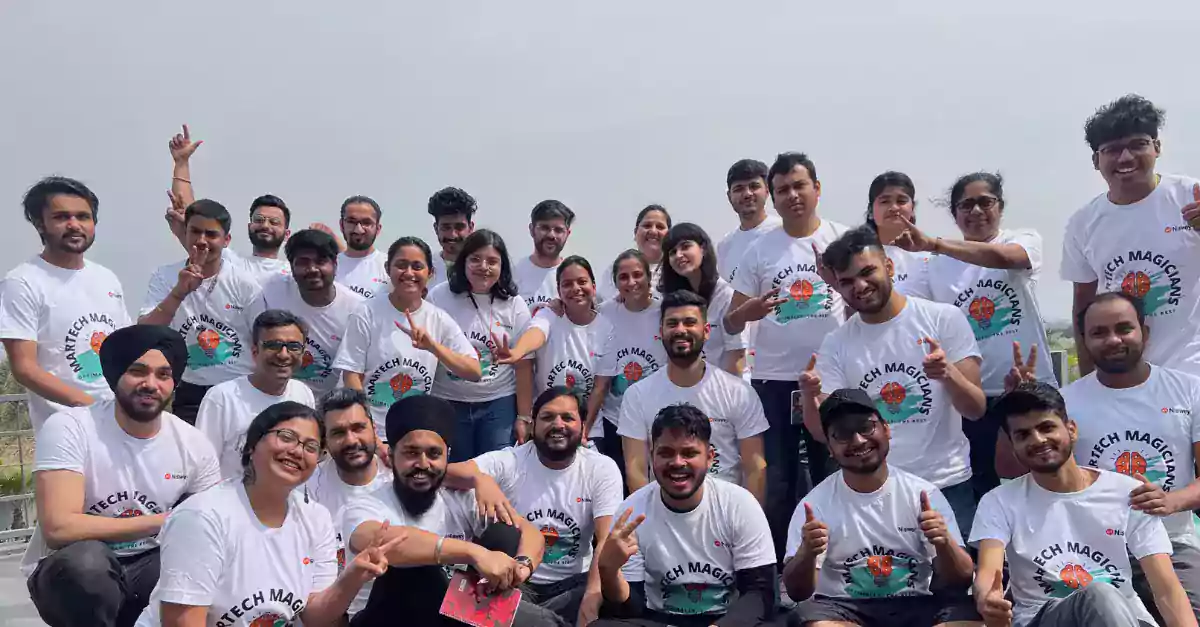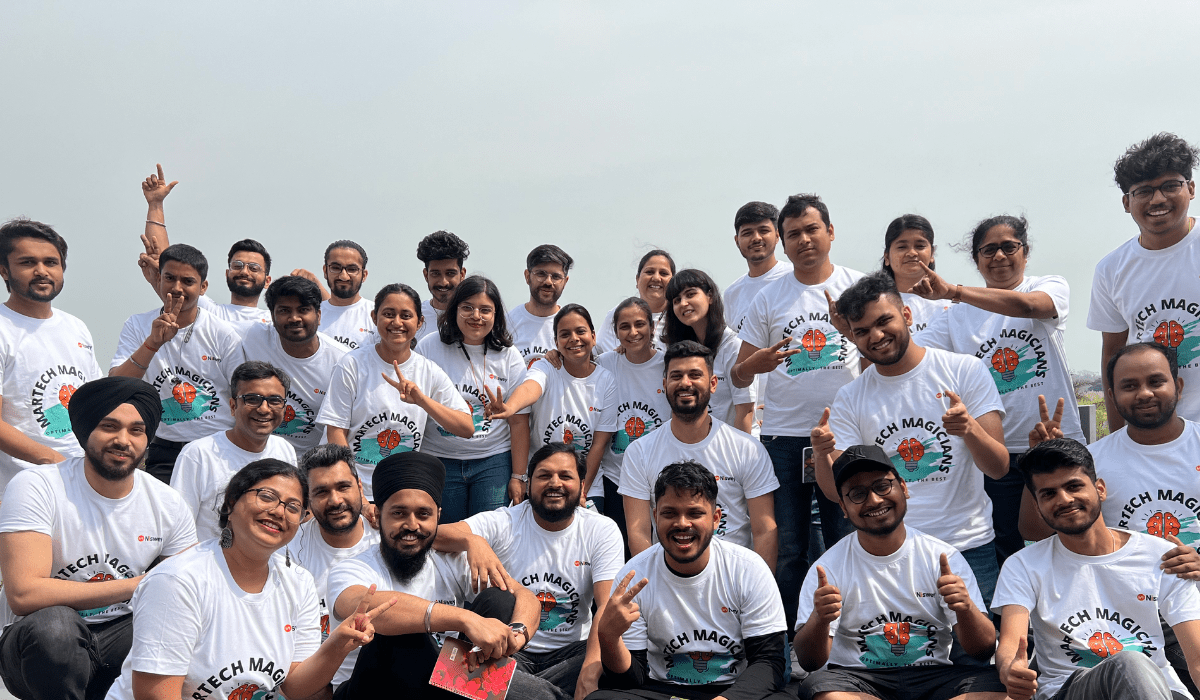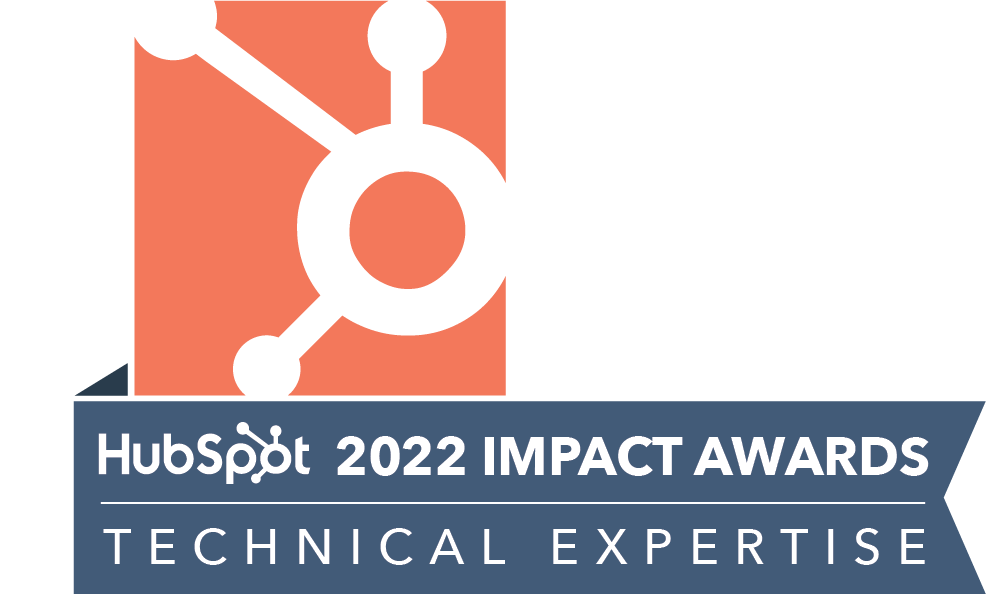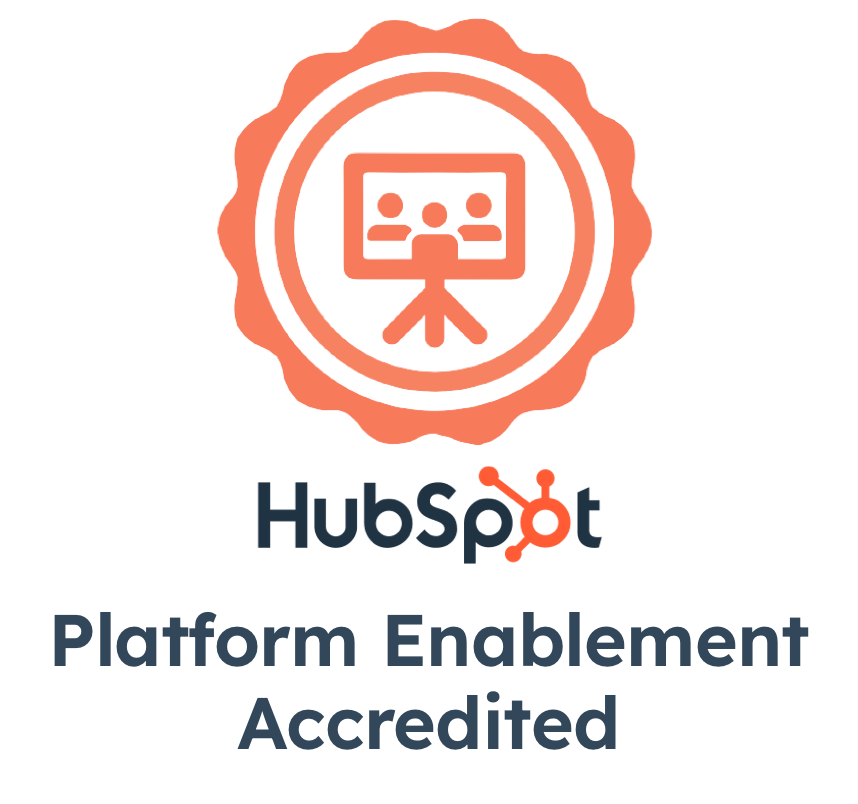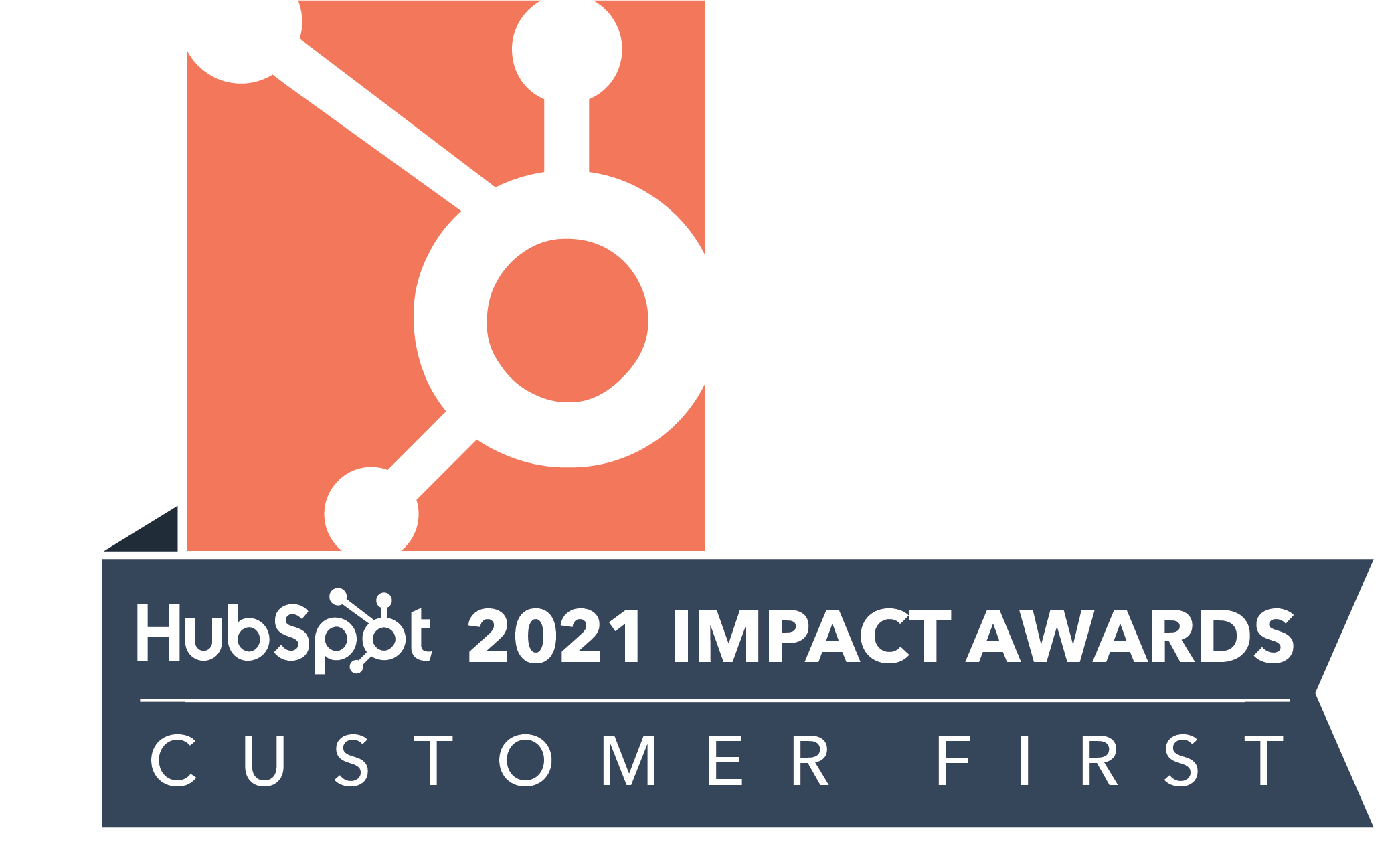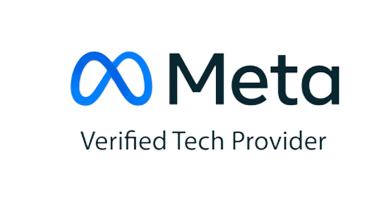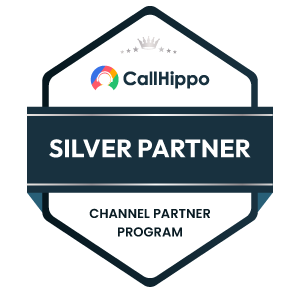“Find a group of people who challenge and inspire you,
spend a lot of time with them, and it will change your life.” — Amy Poehler
Initially, I had thought of the title ‘365 Days of Learning at Niswey,’ but then I realized there was so much more that I unlearned during the year.
When I look back at the reason behind applying for a role in a digital marketing startup, I know that for me it was one step towards achieving the dream many Indian engineers have in college: to experience the magic of an MBA program.
Life before an MBA
Though I was sure about wanting to earn my Master’s degree in India, I didn’t want to wait for the year that I scored a 99+ percentile on the CAT exam. Nonetheless, it would’ve just helped me to grab some interview opportunities for the Indian Institutes of Management and other prestigious colleges. So I turned to the business school for which a candidate is more than just a number: the Indian School of Business.
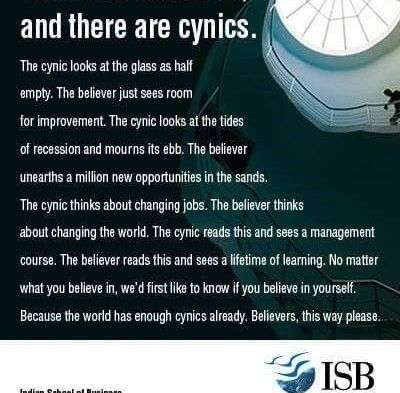
ISB’s marketing was mesmerizing. Some of my earliest impressions were formed while watching the What Do You Believe In? video. It featured Viren Rasquinha, Ankur Warikoo and Thomas Hyland, talking about their life-changing year, boosted risk-taking appetite, and diverse peer group in an entrepreneurial environment. The video ended with some alumni mentioning their best takeaways: being humble, learning by doing (in a shorter span of time), and changing the status quo.
Every night, I used to look at the cover of the ISB prospectus, which asked:
How far can one year of your life take you?
Little did I know that this question would be answered quite before I expected.
Changing my perceptions about the business world
By the time I’d wired my brain to pursue a deferred MBA program, I had unknowingly given myself the liberty to take up a job I really wanted to, until the time I joined ISB.
That’s when I applied to 14 digital marketing startups in New Delhi and Gurgaon.
Though I got replies from four of them, just one startup was ready for the interview.
As I would find out later, Abhinav and some others at Niswey too had graduated as engineers, so they didn’t mind my background. That day, those four years of engineering seemed totally worth it.
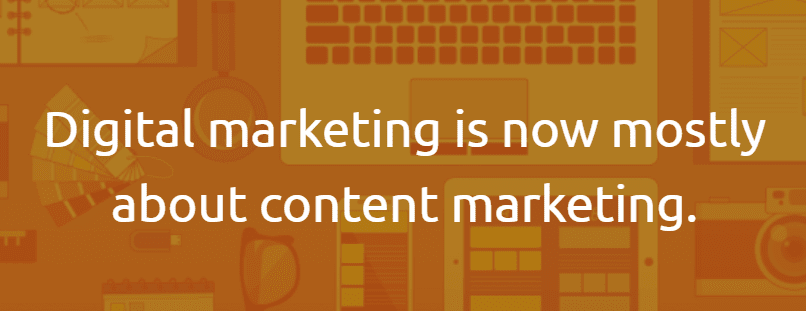
Over the years, I had formed my perceptions about so many things: marketing is competitive, businesses are impersonal, agencies put money first, entrepreneurs cannot work for anyone else, the only way to write is to become an author, educational qualifications are necessary, and passion is blissful.
In my initial months, I discovered that digital marketing was mostly about content marketing. From creating, distributing and optimizing content based on the latest marketing strategy, to content crafted using event presentations, or even informal conversations with the client’s top team.
So, it turned out that marketing was about creation, rather than competition. It was about authenticity and storytelling.
Later in the year, I discovered why many people advise you to choose a good boss over a good job. Though Niswey is a flat organization (hence no bosses), we have great mentors like Suma and Abhinav, who are always ready to give us the right opportunities to grow. Also, as entrepreneurs, both of them enjoy working for all of our clients, as they share a common set of beliefs and values with each of them.
I also discovered that our behavior towards anyone depends on our perception of them, especially when you have to be in regular touch with people outside your core team. So your client might be the toughest client for your company or the biggest client, or simply the client who’s the most liberal. It’s all in your head.
Changing my perceptions about myself
I can count the day of my Niswey interview as one of my luckiest days ever. Not just because I’d found a team that was ready to gamble with the potential they saw, but for that extra amount of faith that hung around, despite the results of the Clifton StrengthsFinder test that I took that evening.
Here’s a screenshot of my top five strengths determined by Gallup.
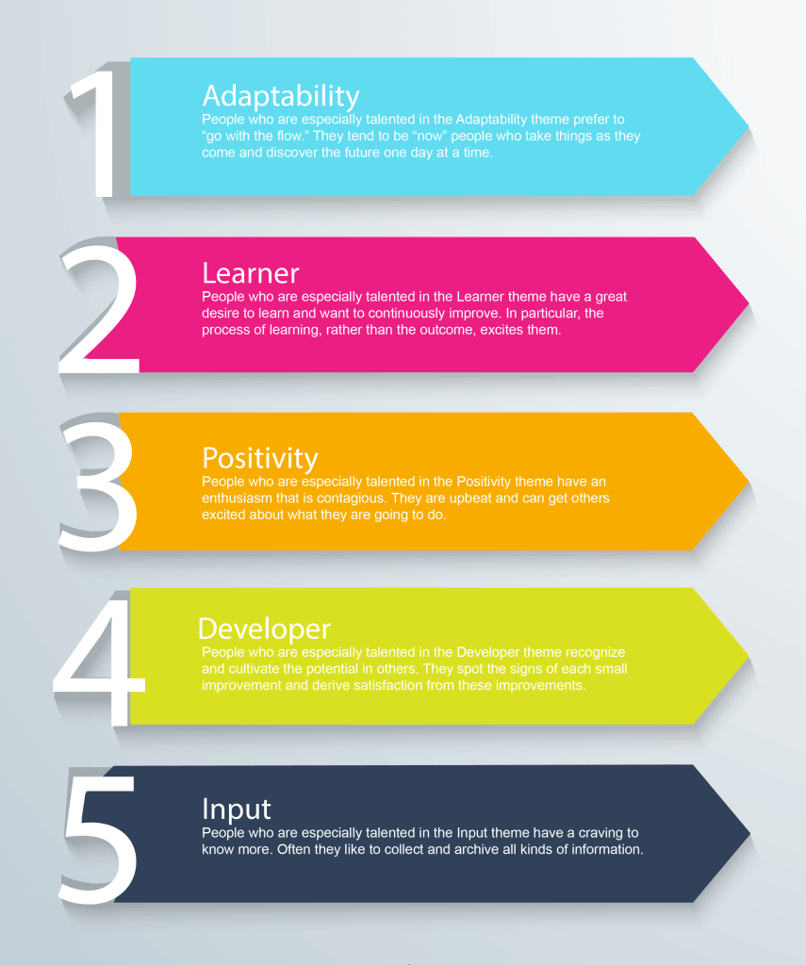
I was aware of my strengths in adaptability, learning and Input, but never knew that I could have an enthusiasm that’s contagious, or that I could cultivate the potential in others. And I also didn’t know that I would soon discover these two strengths at Niswey.
The problem with this set of strengths was their diversity. Three of these strengths came under the Relationship Building domain, while the other two came under the Strategic Thinking domain. This meant zero top strengths in Executing or Influencing, which is not good news for any startup.
I’d once heard at an ISB info-session, that ‘people succeed in life because of their strengths and despite their weaknesses,’ so I was at peace with the reality check I got that day. And ‘positivity’ was one of my top five strengths anyway.
I was still curious to know what else might have worked in my favour—it was the belief of everyone at Niswey in intent.
What helps people stand out? Their belief set
Intent has always helped people survive and thrive at Niswey. The lack of intent to learn something new, achieve greater results and repeat this process every day can make even the greatest of digital marketing experts lose hope in almost no time.
Once you’re ready for everything that comes your way, every day, you can drive the evolution of almost anything that’s ever happened at Niswey. It’s similar to how Seth Godin describes ‘The Mythical 10X Marketer.’ 10X marketers are made, not born. If we’re merely doing our jobs and devoting the same amount of effort everyday, we shouldn’t be expecting 10 times the results. Continuous improvement is something that’s deeply valued at Niswey.
And this also includes cultivating the ability to say no to something dear to you which is not necessary for a particular project on a particular day.
The first step towards doing something exceptional is to believe that you can do it, in your own special way. As a beginner in the field of digital marketing, this wasn’t how I used to think. For me, it was all about hard work and persistence, until the time I became someone worthy enough to do something exceptional. Thankfully, that’s not how things really are, otherwise there would be no beginner’s perspective, or questioning the status quo right from day 1.
Thanks to Suma, I now realize the importance of authenticity, something an engineer in India can easily lose sight of.
This perspective also helped me start blogging at Niswey. If I had held onto that idea of starting writing the day I turned into a digital marketing professional, I might’ve taken a year to start. That’s because I’m yet to write my first blog post specific to digital marketing.
I’ve always been more obsessed with Niswey than with digital marketing. Therefore, I always end up writing something about the people at Niswey, employee generated content, cultural fit, or general collaborative blogs—and this might just be my own version of digital marketing.
Another lesson I learned in the initial months was that execution trumps strategy. And this is not just valid for the work that’s done at Niswey, but for every new idea brought to the table. If you can think of the bigger picture, you should be able to present the next five small tasks to move the Niswey team towards that bigger picture. And now we’re doing this in regular sprints, thanks to Abhinav.

On some days, when you suggest something to the Niswey team that surprises everyone to the core, you may get a mail from Abhinav that starts with a leader such as: “What separates the winners and the losers in innovation is who masters the drudgery.” At that moment, you can only feel lucky to be surrounded by people who always strive to make you perform at your best. Perhaps there is no best form, just a continual process of moving to the next better.
While we have mentors like Suma, who loves seeing people evolve into better versions of themselves, and Abhinav, who makes sure everyone is their most optimized version everyday, these are just two of the people at Niswey. What makes life even more exciting is an ever-evolving team.
What helps a brand stand out? Its people
The only city I’ve ever lived in is New Delhi, which has imbibed its culture from so many other states. And usually I’ve meshed well with people who relate more with other cultures, even if they’re from New Delhi.
This is also one of the reasons why I’ve loved my experience at Niswey. There are people here from Assam, Bihar, Delhi, Kerala, Madhya Pradesh, Maharashtra and Uttar Pradesh, and one person who has stayed in countries such as Pakistan, Turkey and USA. I’m already with a ‘diverse peer group in an entrepreneurial environment.’
And it’s not just about geographical diversity.
A million thoughts can run through your head when you think of the Niswey team. And that’s because all of us have the opportunity to be our most authentic selves, everyday.
While Abhinav starts with ‘why’ and can optimally maximize any opportunity at hand, Akhil can follow-up with any new idea and churn out its execution plan in style. Amita can relate the digital world with almost anything around you, and Anubhav is an artist with a knack for detail and the ability to put life in perspective.
While Daizy is the empathetic and hyperactive designer who can bring your idea to life within minutes, Dhiraj can fascinate you with his ideas and perspectives on anything in life (both real and virtual). Nilanjana is the conceptualization introvert who’s brilliant at sketching, writing, and grasping anything new that’s needed, while Priyanka can take up a mammoth project and break it down into small achievable steps, ‘getting things done’ no matter what. While Shailesh makes you realize that we always have multiple passions in life, and also have the choice to follow any or all of them, Suma surprises you with her appetite for learning and child-like joy, in spite of being the most experienced Knowizard at Niswey.
Above these distinctive qualities, there is a common set of values that binds the Niswey team together (my favorite: learning by asking questions). And whenever someone learns something new, we love putting it up in the form of a blog post or within a set of takeaways.
The reason behind our ever increasing levels of learning is linked with the choices Suma and Abhinav make while choosing a new client. They would politely turn down ‘mega’ offers that require you to handle crappy comments on a brand’s social media channels (which do not have the scope for much learning). This makes us feel protected, and builds more trust within the team. Lesson (un)learned: All agencies do not put money first.
The trust levels are just as high between us and our clients. While an outsider may feel that ‘outsourcing your marketing’ might not be the best way to manage the ‘business’ aspect, a person who has been at Niswey would realize the value of having an emotional relationship with a client, instead of a transactional one. With this in mind, brainstorming around your brand’s requirements would lead to new marketing ideas, while the previous marketing results would give you more business insights. And for me, that’s the first difference between marketing and branding.
Branding: Standing out or self-discovery?
Last year, I became obsessed with branding because it seemed like magic. People are ready to pay a premium for some brands, or go that extra mile even when a competitor’s product is readily accessible. Such customer loyalty! I was curious to know why.
Initially, I used to relate branding with perception. Then I realized how companies used it to differentiate themselves from the crowd, hence the focus shifted to standing out. But now I consider every brand as a human. People don’t go that extra mile for you, they do it for themselves. There is an emotional connect that’s above the typical business-consumer or business-client bond: values and beliefs that make a brand authentic, and hence unique.
Authenticity doesn’t just let you stand out from the crowd, but helps you evolve into a better version of yourself. To continually evolve like that takes a lot of self-discovery. You don’t create your company’s brand, you discover it. For me, the self-discovery of a brand is nothing but the self-discovery of its people.
Whatever I’ve done at Niswey, it has aided my own process of self-discovery. Writing, managing WordPress websites, ghost tweeting, managing social media channels, co-organizing events, hosting Niswey Sync sessions, strategizing for promotional videos, engaging new people at event booths, motivating the client’s team online to do stuff offline, ensuring registrations for webinars, co-designing event collaterals, tweeting live during webinars and conferences, etc. Each of these activities has helped me learn something about myself. Too much for an engineer who was trying to code a Java application just a year ago?
These activities have not just contributed to my process of self-discovery, but also of every brand I’m associated with.
There have also been times when many of us at Niswey have teamed up to try something new on our social media channels, and have not succeeded at it in ways we wanted to.
Scenarios like these teach you lessons that stay with you for the rest of your life.
We learnt more when our mentors let us run with an idea and fail, rather than just telling us it will fail. #LifeatNiswey #GoodtoFail
— nilanjanadey (@nilanjana1220) January 18, 2016
In the last six months, we strived to write as much content for the Niswey blog as we could, in different styles and sizes. At the end of the year, we realized we were not getting the kind of web traffic that this type of content deserved. So now we’ve shifted our primary focus from content creation to content distribution, which is already helping us do better content marketing for our clients. And to top that, we also have Anubhav and Daizy focused on making Niswey a design focused brand.
Who wouldn’t want to give back to such a culture?
This intrapreneurial environment leads to a lot of experiments, optimizations and re-applications into other areas. It’s like a circle of opportunities.
Opportunity —> Self-Discovery —> Optimizations —> Next Opportunity
In fact, shouldn’t this be the way we live our lives? Grab an opportunity, analyze how it affects you as a person, and then improvise on that, till you’re ready for the next opportunity.
Role of self-discovery in life
While reading Simon Sinek’s Start With Why, I realized why so many artists are French, and why so many entrepreneurs are American—it’s based on the culture of a country. People in France believe in a unified identity, and hence value their culture a lot. On the contrary, many people in the US believe more in self-reliance, and hence value entrepreneurship more.
Thinking of this, I realize why so many students in India finish their engineering first and then decide what to with their lives. So did I. It’s still a part of the Indian culture.
So what happens when we’re someone other than an artist in Lyon, or an entrepreneur in New York, or an engineer in New Delhi? We need to make sure we’re able to make a place for ourselves in that city, or may be move to another city that’s a better cultural fit for us.
This thought is similar to how Imtiaz Ali describes the lead character of the movie Tamasha (2015).
There are two questions hidden in this video:
- If you did not have to deal with the expectations of society, would you be the same person you are today?
- Are you pursuing something today at which you’re just average, while there’s something in you which is more precious and which can be utilized further?
If asked during my Niswey interview, I would have answered both of these questions with yes. Today, I won’t deny saying that it’s easier to start doing something we’re expected to do, instead of what we’re meant to do.
All the world’s a stage? I hope not.
A famous figure from the film industry (notice the unintended alliteration) to whom many more people would relate is Arnold Schwarzenegger. He’s one of those guys whom I’ve never seen in action, but I have the greatest respect for. When he became a world-class body builder in his 20s, no one would’ve thought that he would be serving as California’s governor in his 50s. And that in between he would manage to become the Hollywood hunk that most people know him as. Today, he’s most probably onto something else, discovering something else about himself. People like Arnold remind one of this maxim: nothing is more influential than a life well lived.
Every influential life may sound inspiring at first. But when we start putting ourselves into the shoes of influencers, we realize what they must have gone through during certain crucial points in life, and in times of uncertainty and ridicule. That’s something every person on Earth should be ready for, but unfortunately that’s not the case.
Surprisingly, children are the most fearless versions of people on the planet. So what comes in between a fearless child and an influential life? That decade or two right at the beginning of our lives. The time we’re in school.
Role of public education in self-discovery
The present education system is the same as the one which was introduced about 150 years ago. Its primary motto was: if you don’t know it, you fail. No wonder, the word ‘fail’ fails to prove its meaning and purpose throughout our lives. After all, it shouldn’t just be entrepreneurs who are told that it’s good to fail.
In this beautiful talk named What Is School For?, Josh Robinson highlights that we’re born passionate and creative, and go to school to get rid of it. While the purpose of school may seem pretty obvious to most of us, I could relate to this talk as I’ve had first-hand experience in regaining the self-confidence that I had during the initial days of school. The line that resonated with me the most was: “Think about how excited kids are, just in general. And then, think of an adult. Where does that go? What happens to you that all of that is gone?”
After pondering over this, you may realize that adults who seem to be passionate in life were either able to retain their creativity during school or college life, or regain it at a later stage in life.
Niswey, for me, is a school. Not a high school or a business school of today, but a school for the future. A place where we are given the opportunity to discover what we’re passionate about, and get multiple things done in the process. Unlike the schools of today, where students are asked to do the same thing within the same time and at the same speed.
Coming from an engineering background, many of my friends tagged me as a potential writer once I wrote my first blog. But I didn’t feel like I would become a full-time writer.
It was some months later, when I teamed up with a videographer to make a trailer for an event, that I realized it was connecting the dots and presenting a story that really excites me. Now, I can think of also taking up speaking, minimalist design, or even comedy. Sounds funny?
This experience was similar to what Sir Ken Robinson discusses in his short talk: Life Is Your Talents Discovered. We often tend to forget that “Talent is often buried. You have to go searching for it, create the conditions for it.”
I don’t know whether writing, for me, is a talent, but it was surely buried till now. And given my habit of learning from the people around me, life for me is the talents I discover and the people I meet. What about you?
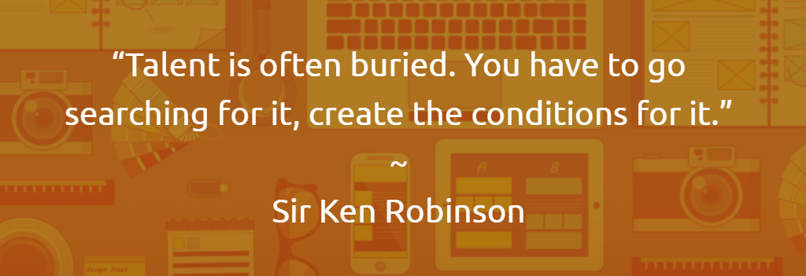
Some schools today are changing the way they teach, using personalized learning. But it will be a long time before they’re able to enable students to discover themselves, especially those inclined more towards art than science. After all, writing, dancing, singing, sketching, coloring, playing, etc, shouldn’t just be primary school subjects, or hobbies that adults take up later in their life.
Till then, we would need experiences that enable us to lead our lives the way we truly want to, and take full ownership for it. Sometimes, we just need to know that there’s an alternative to the path we’ve taken or are about to take. As Suma once said in her Power of Visualization session, “it’s all about rewiring your brain.”
Those myths about passion…
Once we’re out of school, the meaning of passion for many of us is a better word for ‘calling,’ or something that always gets you excited or keeps you curious for life.
But I could relate a lot more to the word once I read Justine Musk’s post that highlighted why passion is not blissful. It described passion as something we’re willing to suffer for.
I even typed in “define passion” in the Google search bar to confirm, and could visualize Jesus Christ nodding with a smile.
This definition of passion obviously resonated with the authors of classic love stories (even the simplest ones), but it was so much more than that. It liberated me from the idea that we’d discover passion one day and it would suddenly make our lives heavenly.
When we relate passion with endurance, we realize that passion can never be a single thing or feeling. People will never have just one passion in life. We can be passionate about a skill set, an industry, an ideology, or all of them together. So how would life be if we use that skill set in that industry to make that ideology evolve?
At Niswey, we’re always passionate about customer oneness, justifying the lifetime value of content marketing, and emphasizing the importance of web design in digital marketing.
Self-discovery and passion together can help us differentiate solitude from loneliness, and unlock a million opportunities for each of us. Here’s the Hedgehog Concept as an example.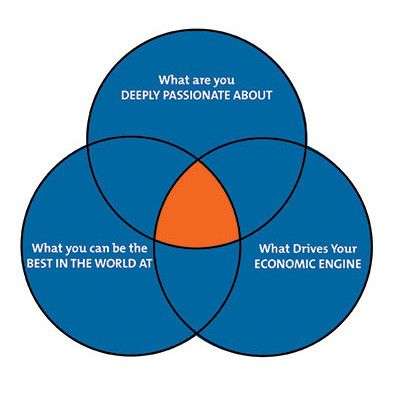
It’s nothing new to tell someone that ‘you can be anything you want to be.’ But what it actually means is best captured in the way the Dalai Lama puts it: To be born at all is a miracle.
So what are you going to do with your life?
People who are crazy enough to think they can change the world are the ones who do.
I believe that should be each one of us.
Learning from people you might never meet
No matter how amazing the people around you are, life is too short to learn only from people you meet everyday or talk to regularly. Also, even for those you’re in touch with, you might never get the chance to analyze their whole life in only a few days. That’s why we have books.
Reading books is a habit many of us lose at school or college, as we’re made to read textbooks we never wanted to. Many of us never touch a book after we are ‘done with’ education. And we’re lucky if we’re able to get back into the habit at some point in life, because it sure is life-altering!
For me, reading books was about fiction, and the pleasure of reading. But it was only last year that I realized the importance of reading, and my interest in non-fiction books grew.
I am still not the best person to appreciate a book, but I read them for the amount of research devoted to them, and the number of dots they connect in my mind afterwards.
Books can really help your brain open up.
The speed at which you read a book would obviously vary. I still cannot finish a book in a month, and there are people who can read a new book everyday. But the main thing is the continuous process of exponential learning that we should never stop. We’re actually not reading a book, we’re just listening to a mentor (and audio books would make this quite literal).
Mentors play a big role in our lives. Every great person we know had a mentor at some point in their life—Albert Einstein, Bill Gates, Mahatma Gandhi, Oprah Winfrey or Warren Buffett.
All of them. And their mentors were just physical ones. With books available at the click of a button, imagine the number of mentors you can have in your life.
Seth Godin has won the heart of almost anyone who is associated with marketing. But what caught my attention more was his passion for revolutionizing education. Some books start with an issue right from its genesis, and then make you feel like you can be part of the revolutionary movement. Stop Stealing Dreams: What Is School For? was this kind of book for me. And life hasn’t been the same ever since.
Some books are so simple and yet so exciting that they leave you thrilled about the idea of writing your own book one day. Not necessarily a book on your life, but a book you will author.
Once such a thought is planted, you would start following your heart a lot more, learn more lessons in less time, and want more twists and turns in life, to get your book’s reader excited at regular intervals. But you’ll actually be doing all this for yourself, not for a hypothetical reader.
It’s equally important to be patient during these twists and turns. It’s okay to let go of what your parents expected from you when you were in school or college. It’s okay to delay accepting something you have known about yourself for decades. It’s okay to discover something new and alter your plan completely. It’s okay. Even ‘OK’ used to mean Oll Korrect.
Sounds okay now?
Whether it’s mentors in real life, or analyses in books, they will teach you more about yourself than you could ever expect. Groundswell was such a book for me. I couldn’t complete it, but I discovered something crucial about myself while I read half of it.

The best people spend a lot of time with themselves, which helps them rethink the way they look at life. Do you do that too?
If you were to start everything from scratch today, would you still go back to the things you were doing till yesterday?
Learning by reading vs. learning by doing
Books are a great way to expand your brain, but no magic happens unless that brain is regularly applied in the right direction.
I remember setting up my Twitter account on the day I decided to apply to digital marketing companies. A few months later, I was to start running Niswey’s Twitter account.
But I wanted to read a famous marketing book (Youtility) before I could do that, as I didn’t know what would work for a company’s Twitter handle. Thanks to the push from the team, I started handling it from the next day and later on found out that the book was just one way to run a social media channel. Another drop in the bucket list of life lessons learned: to avoid the analysis paralysis problem, just take the leap.
Regular experiences like these give your life a new direction, and enable you to look at it with a fresh lens. You’re always open to new opportunities and perspectives, while retaining the belief that there will be no one else like you.
Today @Niswey:
– Almost finished my first case study
– Promoted an exciting webinar
– Drafted tweets for a CEOCheers to the #LifeatNiswey!
— Rajat Taneja (@7Rajat7) January 19, 2016
We can also consider living life as similar to writing a blog post. You can write it in any way you want, and it’s always better to have a leader at the beginning. You can reframe your sentences, or just leave them in between
Blogging is a gem when you realize it is, just like reading. A blog is like any other piece of art online, to which you can get back at any time. And it is now one of the things I look forward to, everyday. It’s not a habit or a hobby. It’s a belief in what Robin Williams once said: “No matter what anybody tells you, words and ideas can change the world.”
And beyond words and ideas are the opportunities and executions that take the WHY and make the HOW possible. This can even include leading a team on your own or freely contributing to an in-house project you love.
These instances have made me a Niswey brand ambassador in my network today, and I talk about it with as much passion as I would discuss business schools a year ago.
Liberty from the MBA
My year at Niswey was also the time when I applied for a deferred MBA program to the Indian School of Business, which required everyone to write three essays of 300 words each.
- If we were to admit just one more student, make a compelling argument as to why that student should be you by describing an achievement in your personal/professional life that you are most proud of. What did you do that sets you apart from others? What did you learn?
- Describe a defining moment in your personal/professional life when you had to make a risky decision, and explain what you did, why and the outcome?
OR - Describe a situation in your personal/professional life when you had to interact with people from diverse backgrounds. How did it affect you and what did you learn?
- What are your post ISB career plans and how will your past experiences and the Post Graduate Programme in Management (PGP) contribute to taking you there?
I always knew that answering these questions would help me in my journey of self-discovery, irrespective of the result.
Though I didn’t get through ISB, I realized that I had already experienced a life-changing year at Niswey, with a diverse peer group in an entrepreneurial environment. A year that boosted my risk-taking appetite and taught me how to be humble, to learn by doing (in a shorter span of time), and to always think of challenging the status quo.
I had come quite far from the time I had decided to apply to ISB, and on further introspection, realized that I never needed that MBA degree for what it gave as a result. It was mostly about the experience, which I had gone through anyway. And now, I am free from the thought that you need to associate yourself with an MBA brand if you’re not a kickass computer engineer, and from the expectations everyone has for a scholar at school who didn’t do well at engineering college.
The unlearning at Niswey made me realize that life is tetris, and I had been playing it like chess.
The world inside us is bigger than the world outside. If that doesn’t sound true, it’s time to change the one outside. Take the inside journey from the mind to the heart.

PS: I wrote this blog post for myself and my dear ones, but it’s also for freshers, engineers, aspiring entrepreneurs, ex entrepreneurs, and in fact anyone seeking to discover themselves while working with a digital marketing company. I would obviously want someone else to describe their 365 days of self-discovery after a year, and ask this question in their own networks: how far can 365 days of your life take you?


